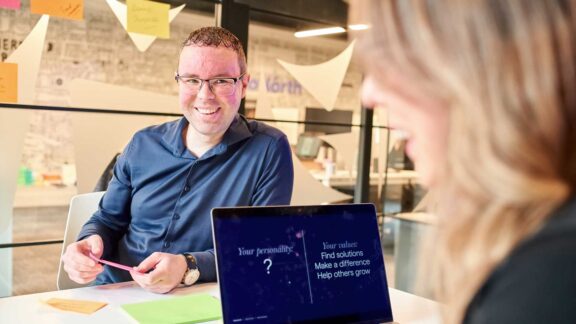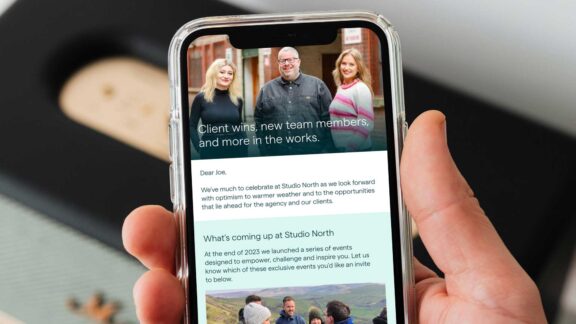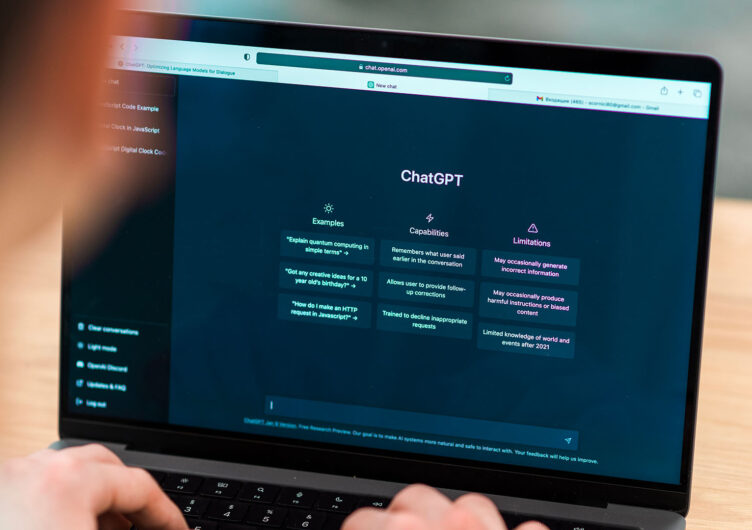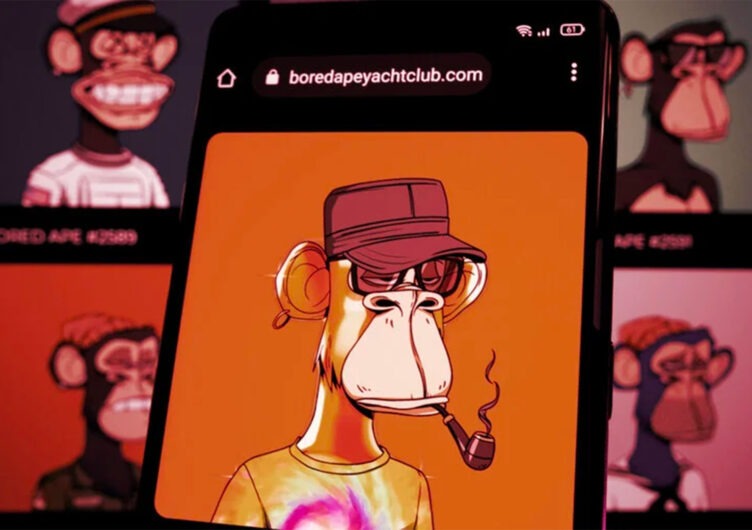Organising agency workflow and steering major projects through to successful fruition demands attention to detail, a can do attitude and meticulous planning ability. Our first hire, way back in February 2003, Gary Butterworth has all the tools in the locker. And more.
Tell us a little bit more about your role at Studio North?
In my role as Digital Experience Director I take the lead on larger projects helping to co-ordinate the team when there are lots of moving parts and tight deadlines and work on UX strategy for our website and digital projects. I oversee our team schedule as well which gives me a good oversight of what’s going on in the agency and helps me identify potential bottlenecks that we can iron out. Day-to-day I also act as Account Manager for clients.
How did you end up being a digital experience director? What was your career path?
I started out as the first employee as a Junior Designer. From day one I had involvement with clients and as I progressed had my own regular clients that I’d take from brief through to design output. This laid the foundation for my jump into project management / account management. I find that the design background really helps at the start of a briefing because I am able to ask all the questions that I as a designer would have wanted to know. My passion for all things digital, led to me getting more involved in the strategy side of projects and UX.
But you’re also something of a hybrid specialist aren’t you?
Yes I also worked closely with UX and development during my career progression which developed my skills in UX and in Project Management of larger teams and more complex projects. I enjoy taking the lead on UX and still occasionally get involved in the design phase as well.
21 years is a long time. How have client needs evolved throughout your career?
We’ve always had a varied client base at Studio North which is something that I enjoy as it means there is always something new to learn or something learned for one client that can be applied to another. Communications tools have evolved and this all helps speed up the process which I think has ultimately lead to deadlines getting tighter and tighter. We’ve been lucky enough to have some great clients and as we’ve evolved our process our level of strategic input has also increased. This has helped some of our clients develop also and helped us attract new and ambitious clients too.
What are your go-to tools for successful project delivery?
Communication is really important in the delivery of a successful project, as is organisation. We use Asana internally to manage all our tasks and dates, this pairs really well with Instagannt which we use to create our project schedules. If a task isn’t in Asana it’s probably not getting done as I keep everything in there and this keeps me really organised.
For client communications we adapt our approach for the type of project, or client needs. The best approach is often the most familiar so we try not to force our tools on clients unless they are comfortable with them. Oh and you can’t really beat a face to face meeting or phone call sometimes.
Tell us about a recent project that you really enjoyed
We have successfully delivered the Stagecoach Students ticket offer campaign for the last 4 years. It’s always a project that has a lot of outputs and deadlines can get pretty tight as well. Co-ordination of a large team working on various outputs at the same time makes it a challenge but it is also very rewarding seeing everyone pull together. Last year we took a step back and got all the different marketing managers involved from an earlier stage, helping to form a new brief for us to work from. Combined with a closer working relationship with media planners Carat I think this really helped us create the best campaign yet. I spent some time during this campaign working in the client’s office which really helped keep up the momentum when it mattered most. Working in this way made it really feel like a genuine client and agency team effort which is the way it should be.
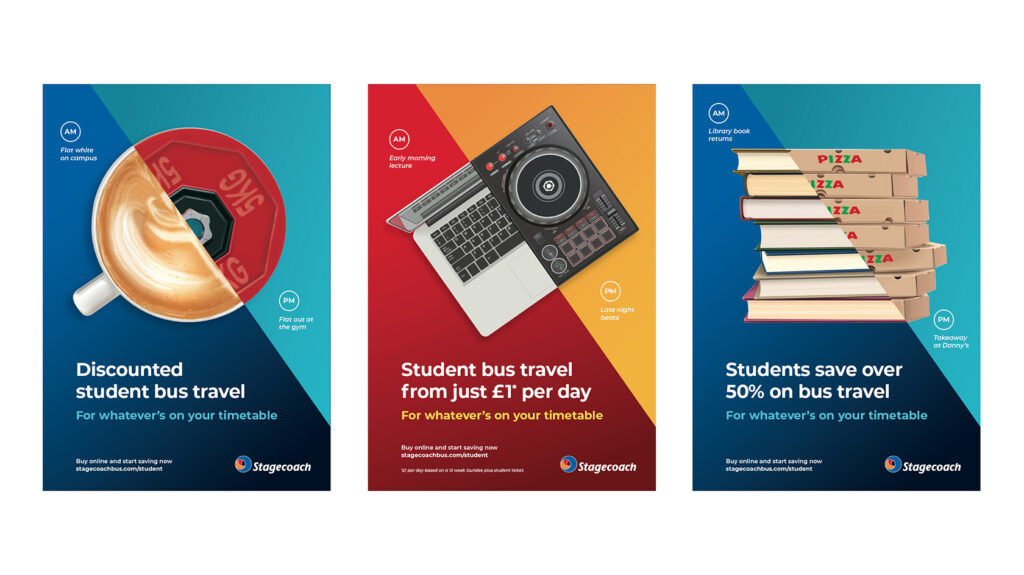
A client is requesting a near impossible deadline. Cut corners or follow process?
Every job starts out by following a process, but that process might not be the same for each job. My experience helps me make a call when to follow the process step by step or when there is a shortcut that may be required. I’ll involve clients in that decision if the deadline is tight then that means we both have to work together to work quickly and get timely feedback. A process isn’t any good if it doesn’t help you meet the deadline so you have to know when and how best to adapt without sacrificing the output.
What do you like to do outside of work? How do you relax and switch off?
I’ve got two young girls now which keeps me busy when the laptop is closed. They like to be out and about so we usually combine a long walk with a trip to the park followed by a nice pub lunch. I’m also quite into my music and like to kick back with my headphones on.
